Gay Plays for Straight People (and also gay people) is comprised of two plays which will play in rep brought to you by the new theatre company Purple Rep founded by playwrights Larry Kunofsky and Mariah MacCarthy. The plays - Kunofsky’s The Un-Marrying Project and MacCarthy’s The All-American Genderf*ck Cabaret – will run from April 8-30 at The Paradise Factory (64 East 4th Street between 2nd Ave and Bowery).
Larry and Mariah took some time to answer my questions and give me some straight answers (and also some not-just-straight answers) about what they’re passionate about, how they explore the fuckupedness of both genders, what it means, exactly, to be “un-married”, and how they intend to keep blending it all up in an effort to keep it Purple. Read on …
Let’s get right into the title. Gay Plays for Straight People (and also gay people). So – really … everyone, right? Transgendered, Bi, Bi Curious … poly amorous … even those who are abstinent for personal reasons or just because that’s the cards they were dealt. So tell me how you came up with that title.
Mariah: We both had these plays we were really passionate about. One is about married people divorcing in the name of gay marriage, and one is about the limitations of gender norms. That’s a lot of queer themes swirling around, but roughly two thirds of our characters are straight and we’re a “straight” couple, which gave us the “gay plays for straight people” idea. But, let’s face it, there’s already plenty of “gay” culture that’s really for straight people, or has been whitewashed to make it “palatable” for straight people, and that’s not what these plays are. These plays come from a real passionate place, as allies and, for me, as a pansexual woman who just happens to be in love with a man. And we want to make sure that the community for whom we are allies knows that these plays are for them. So we added “and also gay people.”But, yes, these plays are absolutely for everyone. Genderf*ck‘s characters, for a start, are gay, lesbian, heteroflexible, genderqueer, and straight–and some of them have not had sex in a longtime, or ever. And the characters in The Un-Marrying Project are gay, straight, WASPs in their 80s, Orthodox Jews, working-class Bronx families, wealthy immigrants, Long Island Italians…you get the idea. These are gay plays for everybody.
Larry: If there’s a link between Mariah’s work as a playwright and my work as a playwright – even before we get into what Purple Rep is about – that link is about Sex and Identity. All our plays are about sex, and there’s usually a fair amount of sex in them. Even if it’s not onstage sex (which does occur, too) it’s the notion that sex has simply MADE these characters.
We’re born from sex and we come alive again on a whole other level whenever we have sex. That’s in ALL our plays! And then there’s identity. Maybe all plays are about a protagonist searching for who he/she is, and our plays can certainly be seen through this lens. Which brings us to Gay Plays For Straight People (And Also Gay People). Hetero- or Homosexuality is not just about choice or how someone is wired, but also about how someone perceives oneself and is perceived. And we are celebrating this. Sometimes sex and identity issues can be oppressive, so we’re not proselytizing about any aspect of this spectrum (we want to look at and write about all of this as comprehensively as possible), but we think that this kind of fluidity within the too often rigid societal expectations on an individual can be liberating. Something that Mariah & I kept saying to each other to make this clear when we were rewriting our plays was, Gay Is A Color. I tried using that as a line in my play, but it never quite fit. But Purple Rep is about all kinds of colors.
The All-American Genderfuck Cabaret features “eight gender stereotypes”. How stereotypical are they? Like … the slut, theprude, the metrosexual, the jock … or will it take some work for the audience to pick them out?
Mariah: You’ll be able to figure it out pretty quickly. You have a Feminine Woman, a Feminine Man, a Masculine Woman, a Masculine Man, a Gay Woman, a Gay Man, a Promiscuous Woman, and a Promiscuous Man. Which translates roughly into Girly Girl, Nice Guy/Metrosexual, Tomboy, Meathead, Feminist Lesbian, Gay Best Friend, Slut, and Player. The play is definitely set up to help you figure these labels out as quickly as possible–so that we can then transcend them, and learn what contradicts or lies beneath these labels.
The Happiest Medium just wrapped up a series on Women’s History Month. Ispecifically asked women how gender played a role in how they’ve been treated in their chosen paths. The answers ran the gamut. So I ask the same question here, but a little differently – will Genderfuck deal with the fuck-upedness found in both genders, or does it lean alittle to one … and if so, which one?
Mariah: Ooh. Love this question! Short answer: Yes, there is fuck-upedness in both genders, and this play definitely tries to explore both. Being a woman, I probably spend more time exploring the fuck-upedness of femininity/the myth of “female identity,” but maybe not–maybe that’s all in my head. This play has been performed before, a year ago, and a lot of men told me how strongly they related to it. When it comes to sex especially, we’re all caught in sort of a weird dance: pursuing/having sex can make us feel special and happy and joyful, or it can make us feel bored and disappointed that it didn’t fix our lives and whiten our teeth and balance our checkbook or whatever we thought it was going to do. And this experience in America is often different for men and women. A statistic I heard about five years ago continues to haunt me: when surveyed, women’s most common fear was being raped and/or murdered, while men’s most common fear was being laughed at. I think a lot of the play comes from the exploration of those fears.
Really, the play is about how we all have infinite choices. If you want to wear a dress, you can. If you wear a dress because you feel pressured to do so but don’t really like it, don’t wear one. If you want to have sex, you should. If you want to stop having sex because for whatever reason it’s not enjoyable for you right now, you should. If you feel like you’re a man or a woman or both or neither or something else, be that. It’s all about what will make you feel happy and connected and sexy.
The second part of the Gay Plays For Straight People (And Also Gay People) is The Un-Marrying Project. It deals with straight married people who are “un marrying” in support of gay marriage … and not re-marrying until it’s legal for everyone. Larry, tell me how this idea came to you.
Larry: I’ve been happily unmarried my whole adult life. But even though I’ve known that marriage was not my deal since forever, it is a right that our laws seem to withhold from a specific class of people and I truly am outraged by this. My patron saint in thinking about how to respond to this issue has been Rosa Parks. A brave and intelligent, but ultimately, by her own admission, a very ordinary person who broke the law in a very simple way that helped change the world. My initial impulse in writing this play was in looking at well-meaning people who would de-marry, if you will, as a similar type of civil disobedience. But that brought me to the notion of how disruptive any deviation from the norm can be. There’s danger in making waves – sometimes people drown. I tend to idolize the individuals behind the civil rights movements of the sixties. I do believe that – with Gandhi as their model – they were hoping for a bloodless revolution. The tragedy was how bloody this bloodless revolution was. And most of the blood seemed to be shed on the side of the just. But ask any survivors if they regret it…
If you two were married, would you actually commit this “act of civil disobedience” if you knew it could bring about change?
Mariah: Yes. We’d do fucking anything if we knew it could bring about change.
Larry: I don’t claim to be a brave or adventurous person, but when I look back at my early years of grade school, my main regret is not getting into trouble enough. I must confess, as an adult, I spend most of my time looking for trouble. That might explain why my past theatre companies broke up and why I’ve been fired from a lot of jobs, but choice and freedom is about calling people (and more importantly, institutions) on their bullshit. So it’s like that early Brando movie, where he’s a biker, and someone asks him, What are you rebelling against, and he’s, like, “Whattya got?!” I’m all for that.
Purple Rep is a relatively new company. I love your mission statement:” … plays that make you see red and hear the blues … until it all mixes in your mind’s eye into a purple rush.” That’s a tall order.What plans do you have to keep this strong mission alive?
Mariah: We plan to keep writing. Purple Rep will eventually do plays by people other than Larry Kunofsky and Mariah MacCarthy, but we started this company because we wanted to do each other’s work. Our work, while vastly different from each other, come from our hearts and guts. I once had a writing teacher ask me, after I brought in a scene with lots of punching in it, “Do you want to hit people?” I immediately responded, “Yes.” I think sometimes I write plays instead of hitting people.
Yet I consider myself a compassionate writer–and often, that compassion just adds sadness to that rage. When we sympathize with a rapist or an abuser or a cheater or a liar or a murderer, that’s tragedy. We know we could have been them under different circumstances, so whatever happens to them could happen to us. So that rage and compassionate-sadness–that seeing-red, hearing-blue thing–is characteristic of a lot of our work. And so are our senses of humor–all that rage and sadness won’t sink in unless an audience laughs with you first. We really consider these plays especially to be great expressions of joy. So, we intend to keep doing plays that have their share of red and blue and laughs.
Larry: That’s such a vital question! Right now we’re hoping to stay afloat through THIS mini-season, but we are trying to see what our next mini-season, or the one after that will look like. Basically, we’re trying to explore how we put the REP in PURPLE REP. This time around we shared the same space and the same designers, sure, but perhaps we’ll do a mini-season with one shared director. Maybe we’ll do one shared cast. We want to constantly re-define what our REP is. And PURPLE is clearly about sexuality this time, but next time… PURPLE can be about race; about the body; about the blending of all kinds of themes. PURPLE is a rorschach color for us, and we’re looking at ways to look at Purple in new ways. Maybe that sounds a little Art School, but to paraphrase something I said earlier, Theatre is a color. We’re testing out the hues and shades through which we can continue participating in this medium.
Thanks for answering these questions! Looking forward to seeing the shows!
Larry: Thank you! These questions were Purple to begin with! You’re One Of Us!!!!!!
I’m honored to be one of you. Can’t wait to see the shows!
~~~
The All-American Genderf*ck Cabaret The Un-Marrying Project The Paradise Factory 64 E. 4th St. New York, NY 10003 United States

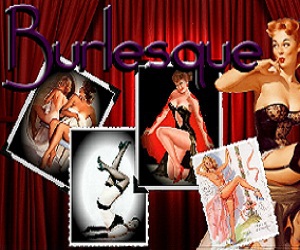
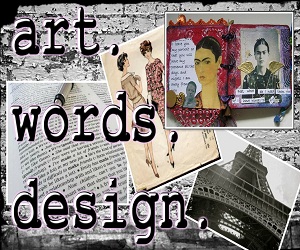

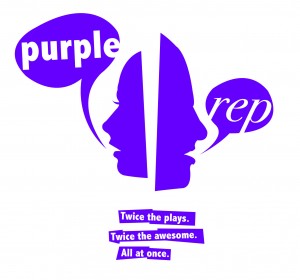
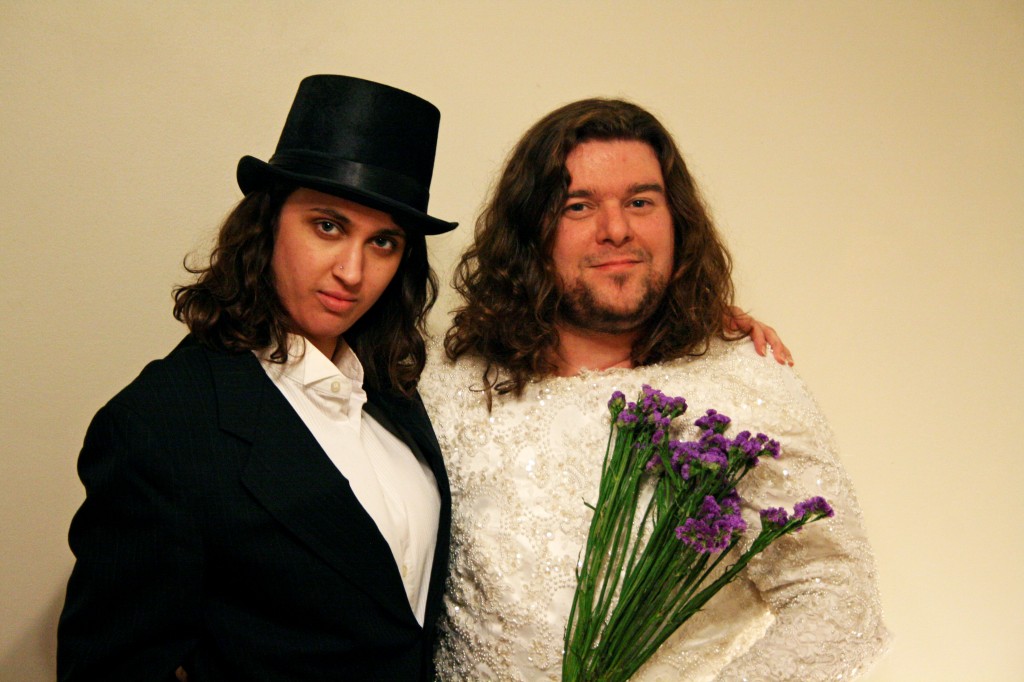

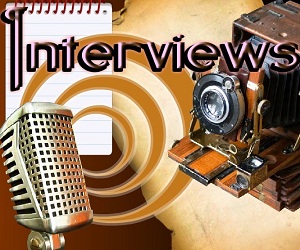
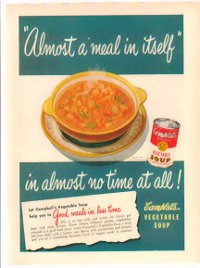
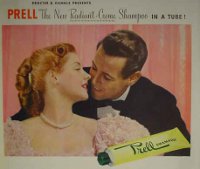
{ 0 comments… add one now }